The Second Mrs. Astor Read online
Page 8
“You shouldn’t let it upset you,” Father said. It was twilight; they sat together on the swinging bench hung from the rafters of their back porch, watching the sky darken above the trees. There was a bite to the air tonight that hadn’t been there even this morning; the breeze from the bay nudged by with an undercurrent of woodsmoke, pungent and crisp. Soon birch leaves would litter the ground scarlet, and the grass would dry into straw, and the days would grow clipped, with violet shadows reaching longer and longer.
Soon they’d have to close up the house and leave, to head back to New York.
Where there were even more reporters.
“How is Mother handling it? The papers calling her—that?”
“Don’t tell her I said so, but I think she’s secretly flattered. La Force Majeure. It implies influence, doesn’t it.”
“It’s rude.”
“It is the nature of our lives, Madeleine. If you dance in the limelight, it’s only natural that people will look at you. You can’t expect otherwise.”
The black iron candle-lanterns decorating the porch remained unlit, but a wan orangey glow from the lamps inside the house spilled over the windowsills, outlining Madeleine and her father both but only very softly, and only along their laps. She hoped that if she kept to the shadows enough, she’d remain a smudgy nothing to anyone observing from the darkness beyond. Of late, there were always strangers skulking nearby, walking slowly up and down the lane, watching the house, watching for her.
“Maddy,” said her father in a new voice, one she knew all too well; it was the graveled voice of lectures, of authority, of imposing family rules. Madeleine braced herself.
“Yes?”
“You are young yet, but God gave you intelligence—”
“Why, thank you,” she said, dry.
“—and a sensible head on your shoulders. I want you to think very carefully about the path you’re treading now. About where it’s going to lead you.”
She turned her face to his. In the deepening dusk, his silver hair became phantom gray, barely discernible. “I promise you, Dad, I think about it every day.”
“No doubt.” He lifted her hand, the one with the tabloid, taking the crumpled pages from her fingers, smoothing the paper flat again against his leg. “You understand, don’t you, that all I’ve ever wanted for you is your happiness?”
“Of course,” she said, surprised.
“But the quality of that happiness . . . I’ve devoted a great deal of thought to that subject lately, something I likely should have done years ago. The quality of happiness. The shape and texture of it. The endurance of it. Believe it or not, I remember what it’s like to fall in love for the first time. To be young and fearless, when the future is spread before you in every color of the rainbow, everything bright, everything impossible suddenly made possible. You’re invincible then.”
She nearly laughed. “I don’t think I’m invincible.”
“Don’t you?” He nodded. “Good. That’s something, to understand that we humans are creatures of marl and earth. Forgive me now, child, but I am your father, and being a father comes with certain prerogatives, so I’m going to ask if you love him.”
She was silent. The sky was deepening, clouding, blue on blue, a wide, curved sapphire at the bottom of a lake.
“Because love is a tremendous gift, Maddy. A gift and a burden. Marriage especially is more than just hope and luck and a handshake. Marriage is work, enormous work, because it’s a living entity that needs everlasting attention. It will push you and bend you and test you, and if you’re not prepared for any of that, it will shatter you. I imagine the colonel could tell you something about what that’s like.”
She stared at the black tall trees, the swimming blue light.
“Being in love makes all that work easier, but it does not make it go away. There will be necessary sacrifices. There will be pain. So I’ll ask you again: Do you think you’re in love with him?”
She sighed. “I could be. He’s—oh, he’s wonderful in so many ways. I could be in love.”
“But you’re not certain.”
Madeleine scowled down at her lap, trying to explain. “When I’m with him, I feel like I’m practically a different person. I feel so . . . noticed. I’m not sure how else to describe it. He looks at me and it’s almost as if he’s given me a magical ability, the ability to be seen. Almost like being on stage again, all lit up, but even better, because it’s only the two of us.” She plucked at her skirt. “But then, when we’re apart, I’m just me again. And I think, well, maybe it was all pretend. My imagination run riot.”
“Will you marry him?’
She felt that heated jolt rise through her, that hot confusion of mortification and hope; she wanted to spring up, she wanted to jump from the swing and leave, but she didn’t. She remained sitting, pressing her palms against the slats of the bench.
“Katherine asked me the same thing, back at his cottage.”
“Katherine is far more savvy than the rest of us, I suspect.”
Madeleine crossed her legs and kicked up a foot, up, down, trapped and restless, and the folds of her dress hissed with each kick, and the bench rocked and creaked. “He hasn’t asked me to marry him.”
“He will, though. Unless he’s an absolute scoundrel—and despite the tales, I don’t believe that’s true—he will ask.”
“Maybe,” she said. “Maybe he will, or he won’t. I don’t know. I want him to, but I don’t know why he would.”
Father’s eyebrows raised. “Don’t you?” he said again.
“I don’t,” she said fiercely. “And I realize you’re my father, and you’ll tell me all sorts of reasons of why I’m so special, why Jack should want to be with me, but in the end, it’s not up to you or me, is it? It isn’t. It never is. The man holds all the power in courtship, and always will. So I can’t—I can’t let myself worry about marriage now. If he does ever ask, I’ll worry about it then.”
Father paused, looking at her. The swinging bench creaked slowly back and forth. “You have power too, Madeleine. You have the power to walk away.”
“But I don’t want to,” she whispered.
“Then I fear marriage is a worry for today, not tomorrow. John Jacob Astor is no ordinary man. He carries a storm on his back wherever he goes, a tempest of unremitting scrutiny.” He tapped the battered tabloid against his thigh. “The rumors, the journalists, the gossip sheets . . . it’s important for you to comprehend that we stand at the beginning of it all still. Aligning yourself with the colonel, with his family—with all that would entail—means this storm will never end for you. Ever.”
“I’m not afraid of that,” she said, willing it to be true. Because it was Jack, wasn’t it? Jack, who could smile at her over a cider doughnut and make her feel like the luckiest girl in the world, like she’d only been waiting to be discovered until he had discovered her.
So it had to be true.
Dad patted the back of her hand. Rheumatism was beginning to take his joints; his fingers hardly flexed against hers, his skin cool. “All right. But you will allow me my fatherly prerogative, I hope. You will allow me to be afraid for you.”
He gazed out into the night, at the scattering of stars just beginning to prick the lining of the sky, and said it again, muted.
“Allow me to be afraid.”
* * *
The bite to the air grew sharper. The leaves began to change, slowly at first, and then seemingly all at once, and everywhere she looked were great splashes of copper and vermilion and plum atop spindly trunks, and the bright annuals in the Village Green flowerbeds faded into beige. It rained still, black-pearled days of misty rain, but it wouldn’t for much longer. Soon the rain would turn into snow, and all the cottagers would flee back to their city homes, to the solid comfort of life amid every winter luxury to be found.
Madeleine wanted to leave, but then on the other hand, she didn’t. Jack had decided to stay a while longer in Bar Harbor, and so re
mained the rest of this small, glimmering society, like barnacles attached to an anchored ship’s hull. Yet she couldn’t help thinking that being back in Manhattan might be better, somehow. More anonymous. Their brownstone was much smaller there but the city itself much, much larger. It would be easier to blend in with crowds, to walk and shop and dine without always fretting about being followed.
But the colonel stayed, and so the Force family stayed. And everyone stayed. Madeleine began to wonder if they would be there long enough to see the lakes freeze, and the locals driving their motorcars and ice boats across the thickly glazed water. She’d seen daguerreotypes of that, bundled figures skimming along on skates, the autos parked far from the safety of shore.
At Jack’s invitation one brisk September evening, they dined at the Swimming Club. He’d booked the entire dining hall of the clubhouse, and the mood was festive, with wine freely poured before the meal and the colonel’s guests laughing and chatting without taking their seats, a few of the ladies occasionally tugging their gloves higher to better cover their arms.
As Mother had begun to mention more and more, they had not shopped for this weather—and while stranded so far from the elite modistes of Manhattan, they were unable to do so. Looking around the room, Madeleine thought that hardly any of the ladies had prepared for the cold: the lightest of crêpe de chine and tulle were still being worn, gentle swirls of pastels much better suited for the months that had come before than for this one.
The seasons seemed all atilt. Summer had dissolved into something new, something not quite not summer, but not yet definitely anything else.
It was all because of Jack.
“Would you have ever guessed there exists a man with the power to change the orbit of the planet?” Katherine asked lightly, standing beside her sister near the chamber’s only hearth as they watched the colonel greet yet another patrician couple.
“Is that his power?” Madeleine asked.
“We hang like icicles here by the andirons, Maddy, trying to thaw. It feels like we’ll be thawing for an eternity yet—why won’t the Club’s harebrained manager build up the fires? Anyway, no. That is not the colonel’s power. It’s far more straightforward than that. It’s the power of wealth.”
“Which is also his,” Madeleine noted.
“Yes.” Her sister rubbed her arms. “His preposterous, ridiculous wealth.”
Leta Wright strolled up, a cashmere shawl wrapped tight over her shoulders.
“May I join your little cloak-and-dagger conference over here by the fire?”
“It’s not cloak-and-dagger,” Katherine said. “We’re just trying not to freeze to death.”
Leta nodded. “It’s worse across the room. Look at Henrietta over there, talking to William Dick. I think her lips are blue.”
As he was shaking yet another hand, Jack turned his head, finding Madeleine across the busy chamber. They looked at each other in the flickering light, steady, connected, two-three-four, before he turned away again, smiling, bending at the waist to reply to something a diminutive white-haired matron had said.
“Maddy,” said Katherine in a low voice. “Fix this.”
Madeleine came awake. “What?”
“Fix it.”
“Fix what? The fire?”
“No, silly. Fix this.” She made a sweeping gesture to take in the chamber, the finely dressed people attempting to smile past their clenched teeth. “We are pinned here in Bar Harbor like bugs to a board because of your beau.”
Leta snorted a laugh; she smothered it with a hand clapped over her mouth. Madeleine glanced at her, her merry dark eyes above the fabric of her glove, then back at Katherine.
“Don’t be absurd. I don’t have the means to—”
“Of course you do,” Leta interrupted. “You have the means, the ability, the wiles—all of it. Any of it. We are entirely at your mercy, anyone at all could see that. You, the sublime Miss Madeleine Force, hold us hapless, commonplace mortals hostage, captured in the heart of your hand, because God knows our own mothers don’t have the sense to yank us out of the cold. Not as long as Colonel Astor dallies nearby. Make use of it, please, I beg you, and send us all back to civilization. I swear I can’t eat another bite of lobster, or clams, or lobster mixed with clams.” Leta lifted the flats of her palms to the fire and gave a groan, tilting back her head so her neck showed long and taut. “Lord, I miss dining at the St. Regis.”
* * *
It had been weeks since that al fresco dinner party in Beau Desert’s ripe garden; Madeleine and Jack no longer sat tables apart. He had placed her on his right, within easy distance for conversation and lingering looks. Despite the fire popping in the hearth and the gas chandelier quietly hissing above their heads, the walls loomed dark and the light spread thin, and it felt something like dining in a chilled, stylish cave.
Madeleine cut the side of her fork into her lobster rissole. The pastry flaked apart, paper-thin slivers falling pale against the plate.
She took a breath, prepared to tell the first, the smallest of white lies, which surely did no real harm to anyone, did it, but which might actually accomplish some greater good.
“Mother is talking about going back to New York in the next week or so,” she said, not loud, and brought the fork to her lips, tasting butter and marjoram and cream.
Jack looked at her, arrested, then recovered. He sliced into his own rissole, severing off a sizable chunk.
“Then let’s go back,” he said.
CHAPTER 8
December brought my debut.
Officially it happened one gray frosted afternoon, at the coming-out reception my mother hosted for members of our circle at our Manhattan home. I wore white, of course. We had tea and punch and sandwiches and éclairs, and all my friends attended, along with their various minders attached. In the span of just a few weeks, there was a flurry of receptions for the Junior League, and it seemed we chased each other from house to house to house to fit them all in. Inevitably we’d arrive shaking the weather from our hems, smoothing the snow or the sleet or bitter drops of rain from our meticulously managed coiffures.
Each new gathering, each new luncheon or dinner held in our honor was conducted in rigid ceremony. Our mothers and grandmothers seemed to be warning us, Yes, once and for all, your childhood is over. Womanhood means you must not ever laugh or burp or break wind again. This is how you will marry well.
I could not wait for the formalities to end.
And then came the Christmas Ball at the Murray Hill Hotel. It took place a few days later and was my first real appearance as a young woman deemed Acceptable for Marriage by the beau monde.
That spangled, icy night. Alabaster satin, ostrich feathers, a narrow bracelet of diamonds sparkling against one wrist. That morning, Jack had sent over an entire box of pink roses, their color so creamy and delicate the petals might have been carved from the inside of a seashell. Nestled in with the roses was a cable of pearls of the precise same tint, heavy and long enough that I wore it like a bandolier of bullets around my body.
I danced for hours.
In a small, empty antechamber off the ballroom, your father and I shared our first kiss.
The papers would later call me a Christmas present for all of New York society. I don’t know about that; I think really they meant for themselves. Young Miss Force, freely and openly presented to the world, fodder for the tabloids, her face (soft and demure and in profile; Mother had paid a small fortune to the photographer and that damned docile image followed me everywhere) published as often as they could find an excuse to use it.
I was now officially fair game.
February 1911
Manhattan, New York
The air in Manhattan had a different tang to it than that of Brooklyn, although Madeleine couldn’t define exactly how. It smelled less stale, perhaps; less sour, since most of the streets snaking around and across Fifth Avenue were no longer hard-packed macadam. The air here was scented more of stone than t
ar, and (in the summer) more of trees than grass. Since the clouds above the city had bubbled into their thick, slaty-blue gloom and the snow had only just begun slanting down, Manhattan was now also blanketed in the particular odor of burning coal and damp iron and, for Madeleine, the pungent miasma that was the exhaust rising from the back of the family’s chauffeured limousine.
Whenever the auto stopped or paused along the streets, fumes seemed to seep through the very seams of the chassis, coating her skin and the back of her throat.
It was making her nauseated. Madeleine began to pry open the window beside her.
“Maddy!” Katherine slapped her hand away, leaning over her to shut the window again. “You’re wearing brocade. Do you want the reporters to see you all spotty?”
“No,” Madeleine said, chastened and queasy. “Of course.”
The motorcar bounced along a mudhole and passed a wagon; the staccato strike of horseshoes against cobbles rang in her ears. She set her jaw, closed her eyes.
“Madeleine.” It was Mother, seated on the other side of Katherine, soft-voiced, thinly urgent. “Chin up. We’re nearly there, and you look so peaked.”
Madeleine opened her eyes. She wondered if she might vomit, and if she did, if any of the cameramen lying in wait for her would capture it for all of humanity to relish.
Absolutely they would. Without question, they would.
Katherine put her mouth to Madeleine’s ear. She smelled of orange blossoms, spicy sweet.
“Think of the colonel,” she whispered. “Think of his face. Think of his smile the instant he first sees you. How it brightens him. Illumes him. Think of how that smile is for no one else but you.”
Illumes. “You should be a poet,” Madeleine muttered past her teeth.
“Maybe I will,” Katherine responded, cheery. “No doubt all the gentlemen would swoon over my verses.”

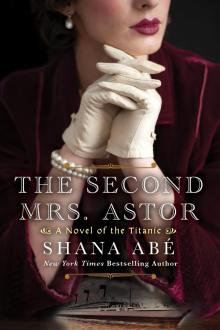 The Second Mrs. Astor
The Second Mrs. Astor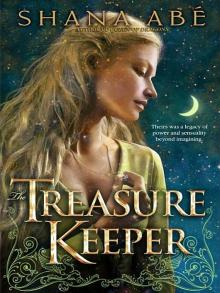 The Treasure Keeper
The Treasure Keeper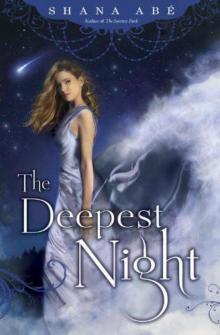 The Deepest Night
The Deepest Night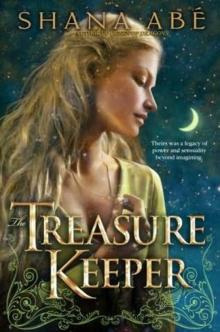 The Treasure Keeper d-4
The Treasure Keeper d-4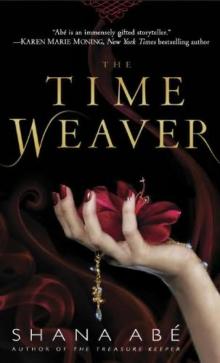 The Time Weaver d-5
The Time Weaver d-5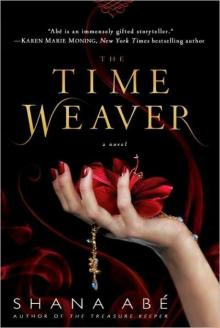 The Time Weaver
The Time Weaver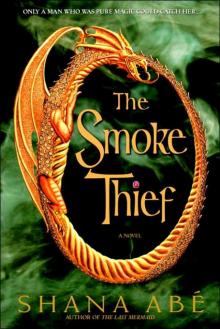 The Smoke Thief
The Smoke Thief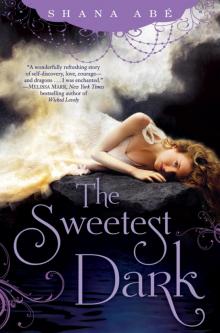 The Sweetest Dark
The Sweetest Dark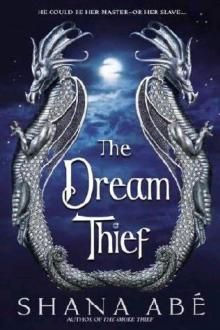 The Dream Thief
The Dream Thief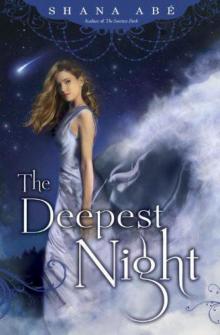 The Deepest Night tsd-2
The Deepest Night tsd-2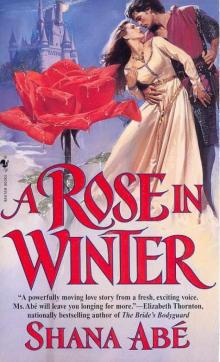 A Rose in Winter
A Rose in Winter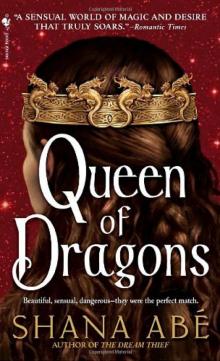 Queen of Dragons d-3
Queen of Dragons d-3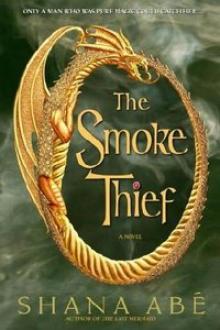 The Smoke Thief d-1
The Smoke Thief d-1